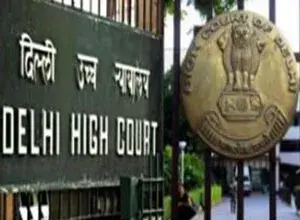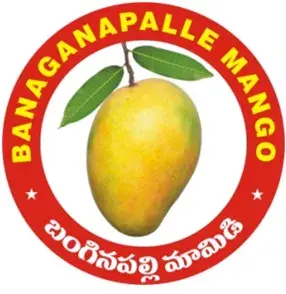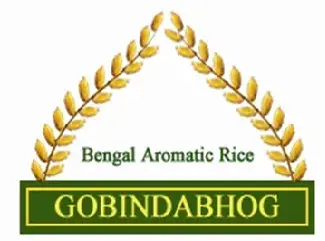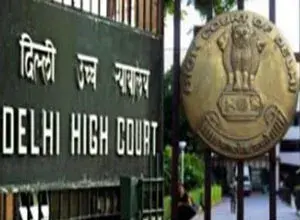India: Delhi High Court states that Patent Working Information is not ‘Confidential’
 Recently, a writ petition was filed by Prof. Shamnad Basheer wherein he pointed out that many Patentees and Licensees have not submitted the commercial working statement and no action has been taken against them as per Section 122 of the Indian Patents Act, 1970.
Recently, a writ petition was filed by Prof. Shamnad Basheer wherein he pointed out that many Patentees and Licensees have not submitted the commercial working statement and no action has been taken against them as per Section 122 of the Indian Patents Act, 1970.
Hosting a Webpage on Facebook Would
 In a case of paramount of importance with regards to the enforcement of Intellectual property rights utilized by the World Wide Web, the Delhi high Court held that jurisdiction of a court cannot be invoked in areas where interactive websites are simply accessed by users.
In a case of paramount of importance with regards to the enforcement of Intellectual property rights utilized by the World Wide Web, the Delhi high Court held that jurisdiction of a court cannot be invoked in areas where interactive websites are simply accessed by users.
India: Re-Registration of IPRS as Copyright Society
Indian Performing Rights Society, a representative body of owners of music, viz. the composers, lyricists and the publishers of music, on November 28, at last got re-registered as a copyright society, under the Copyright Act, 1957.
India: Facebook removed nearly 3 Million posts following Intellectual Property related complaints
 Taking a very strong step towards the fight against counterfeits, Facebook axed nearly 3 million posts from its services during the first half of 2017, following complaints of copyright and trademark infringement this year.
Taking a very strong step towards the fight against counterfeits, Facebook axed nearly 3 million posts from its services during the first half of 2017, following complaints of copyright and trademark infringement this year.
India: Banaganapalle Mangoes Gets a Geographical Indication (GI) Tag
 Andhra Pradesh tasted the sweetness of its Banaganapalle mangoes as it finally got the Geographical Indication (GI) tag this year in May after a long wait of 100 years.
Andhra Pradesh tasted the sweetness of its Banaganapalle mangoes as it finally got the Geographical Indication (GI) tag this year in May after a long wait of 100 years.
India: Gobindobhog Rice gets a Geographical Indication (GI) tag
 Other than Rosogolla, the Government of West Bengal, earlier last year in September earned itself another Geographical Indication (GI) Tag in Gobindobhog Rice. The rice is a native, aromatic, non-basmati premium variety rice from West Bengal.
Other than Rosogolla, the Government of West Bengal, earlier last year in September earned itself another Geographical Indication (GI) Tag in Gobindobhog Rice. The rice is a native, aromatic, non-basmati premium variety rice from West Bengal.
China: Government’s Tougher Take on IPR Infringement
 In the pursuit of making more stringent IP laws the State Council, China’s cabinet on November 22, 2017, said that ‘penalties for IPR infringement will be increased to lower the cost of safeguarding such rights. Quick and low-cost ways of safeguarding IPR must be expanded.’
In the pursuit of making more stringent IP laws the State Council, China’s cabinet on November 22, 2017, said that ‘penalties for IPR infringement will be increased to lower the cost of safeguarding such rights. Quick and low-cost ways of safeguarding IPR must be expanded.’
‘The Magic Called Innovation’: Innovation Festival, 2018
On the weekend of January 20-21, 2018, all the budding minds in New Delhi flocked to the National Science Centre (NSC), Pragati Maidan, New Delhi for the Innovation Festival, 2018. It aimed to foster a passion and aptitude for science and technology and provide a unique platform to avant-garde and creative Innovators. S.S. Rana & Co.
India: Delhi High Court states that Patent Working Information is not ‘Confidential’

Source: www.delhihighcourt.nic.in
Background
‘Commercial working statement’ is the information submitted about the working or non-working of granted Patents by a Patentee or a licensee to the Indian Patent Office by making a request on Form 27. This is required to be submitted with the Indian Patent Office within 3 months from the end of every year that is before March 31 of every year or when the Controller issues a notice regarding submission of such information. Recently, a writ petition was filed by Prof. Shamnad Basheer (hereinafter referred to as the ‘Petitioner’) wherein he pointed out that many Patentees and Licensees have not submitted the commercial working statement and no action has been taken against them as per Section 122 of the Indian Patents Act, 1970 (hereinafter referred to as the ‘Act’).
Petitioner’s Submission
The Petitioner highlighted many instances where there was a failure to comply with the submission of a working statement by the Patentees or licensees. These are:
- As reported in the Annual Report for the year 2012-2013 submitted by the Office of the Controller General of Patents, Designs, Trademarks and Geographical Indications, ‘there were totally 43920 patent issued during that period, but the commercial working statement on Form 27 was submitted only in 27946 cases and moreover, only in 6201 cases the statement was recorded as working’. It sought information from the Union of India (hereinafter referred to as the ‘Respondents’) regarding the actions that have been taken against the Patentees/Licensees for not submitted Form 27.
- It further referred to the case of M/s NATCO Pharma to whom a Compulsory License was granted for the Patent No. 215758 and the order, which granted Compulsory License, imposed an obligation on M/s NATCO Pharma to report the accounts of sales to the Controller on a quarterly basis, on or before the 15th of each succeeding month. It sought information as to whether M/s NATCO Pharma has complied with the order and if not what action has been taken against them.
- The Court’s attention was further drawn to another statutory noncompliance where the the Petitioner pointed out that Section 146(2) read with Rule 131 also makes it mandatory for a licensee to submit the working statement to which the Controller of Patents and Designs, CPIO responded that “Form-27 are filed by Patentee only”.
- The Petitioner also pointed out to an instance where Form 27 was submitted by M/s Telefonaktiebolaget LM Ericsson (Pub.) in respect of patent no.203034 where the Patentee mentioned that details of licenses and sub-licenses would be only disclosed on the direction of the Patent Office.
Intervener’s Submission
Ms. Pritha Srikumar, Advocate for the intervener, has submitted that the Petitioner has pointed that Form 27 was vague, a relook into the same by the Respondents is necessary, and hence, non-compliance of submitting Form 27 cannot be faulted with.
Court’s Observation
- The Court held that the response of “Form-27 are filed by Patentee only“ by Controller of Patents and Designs, CPIO is contrary to statutory requirement as per Section 146 of the Act.
- With regard to the Form 27, submitted by M/s Telefonaktiebolaget LM Ericsson (Pub.), the Court stated that the Patentees/Licensee are required to furnish details of the licenses and sub-licenses. Further, it held that these information cannot be termed “confidential” and therefore, the Patent Office has to take action against Patentees/Licensees who do not furnish the required information for submitting Form 27.
- The Court held the submission of Ms. Pritha Srikumar to be erroneous and stated that there can be no exemption from statutory provision and the Patentee/licensee who submits the same with the Patent Office should clarify any problem relating to Form 27. About having a relook into submission of Form 27, the Court observed that the Respondents have submitted in their counter affidavit that public comments were invited for the amendment to Form 27.
- The Court further stated that the writ petition by the Petitioner has remained pending with the Court since 2015. Also, they do not have any information as to whether there is any change in the status with regard to the submission of working statement under Section 146 of the Patents Act, 1970 and whether any action is taken by the Controller General of Patents and Designs under Section 122 of the Act against Patentees/Licensees who are not complying with the submission of commercial working statement.
Further, Mr. Amit Mahajan, the Learned Central Government Standing Counsel (hereinafter referred to as the ‘CGSC’), prayed for an adjournment with regard to information about the status of any amendment to the rules and action taken under Section 122 of the Indian Patents Act for non-compliance in submission of working statement. Therefore, the Court granted time to CGSC and the matter will be next heard on January 18.
Conclusion
Submission of working statement by making a request on Form 27 is mandatory and is required to be submitted by Patentees/Licensees without hiding any information as confidential. Any failure to comply with the submission of Form 27 would lead to imprisonment or a fine or both as per Section 122 of the Indian Patents Act.
Not Confer Jurisdiction – Delhi High Court

Source: www.delhihighcourt.nic.in
The Delhi High Court in News Nation Networks Pvt. Ltd. v. News Nation Gujarat & Ors. [1] vide an order dated December 22, 2017 on the question of jurisdiction held that “…merely hosting a web-page on Facebook would not be sufficient to confer jurisdiction on a court where the defendants does not carry on business. Merely because Facebook is an interactive site and permits the users to offer comments or indicate whether they “like what they see” on the site, would not be sufficient to provide a cause of action for passing off in a jurisdiction where the Defendant does not enter into any commercial transaction,”
Facts:
The Applicant, News Nation Networks Pvt. Ltd., is a media house engaged in the business of broadcasting, telecasting, relaying, transmitting and distribution of news. The Plaintiff owns and operates a Hindi news channel under the trademark and trade name “NEWS NATION, which is broadcasted all over India, including the State of Gujarat- by way of cable streaming, Direct To Home (DTH) service and also by online streaming. The Plaintiff stated that the mark NEWS NATION is a combination of two words and was coined by the Plaintiff in the year 2012 and being used by it since April, 2013. The Plaintiff has applied for registration of the mark NEWS NATION; however, the same is pending before the Registrar of Trademarks, Delhi. The Plaintiff further stated that the plaintiff has a formidable presence on the internet and operates a website with domain name “www.newsnation.com”, along with significant presence on social networking sites such as Facebook and Twitter. It is also stated by the Plaintiff that the Defendants have established a media house and have started publishing a newspaper under the name of “News Nation Gujarat” and also run a website with the domain name “ww.newsnationgujarat.com” along with an interactive Facebook page titled as “News Nation Gujarat”. The Plaintiff further stated that although the newspaper was circulated in Gujarat but it was being circulated through the World Wide Web and the same is accessible to users in Delhi as well and thus causing grave confusion and deception among the public at large and therefore, amounts to passing off, unfair competition and unfair trade practice.
Assertions:
The Plaintiff contended that Delhi High Court had jurisdiction to decide on the matter on the following assertions:
- That the Defendants are circulating news under the impugned “NEWS NATION GUJARAT” mark through its website and online webpages which are accessible and being viewed in Delhi and within the Jurisdiction of the Hon’ble Court of Delhi. The alleged mark of the Defendants “NEWS NATION GUJARAT” is causing confusion amongst people and members of industry based in Delhi.
- The Plaintiff received e-mails written by a third party M/s Prime Time Communications based in Delhi, that uses the Plaintiff’s channels for advertising its products/services, inquiring about the newspaper NEWS NATION GUJARAT and expressing their intention to advertise the same. The said e-mail was received by Plaintiff at its registered office in Delhi.
- The Plaintiff has been receiving several telephone calls from members of the trade several of whom are also based within the territorial jurisdiction of this Hon’ble Court inquiring about News Nation Gujarat and expressing their intention to advertise the same.
- During the course of proceedings, it was conceded on behalf of the plaintiff that the defendants do not circulate their paper online through their website but on social media platforms. It was contended that the defendants’ newspaper was available on its “Facebook” and the defendants were circulating news through www.facebook.com, which the plaintiff claims is an interactive site.
- That the jurisdiction of this Court is invoked only on the basis of two assertions. First, that the newspaper is published on a page on www.facebook.com – which is an interactive site inasmuch as, users, can place their comments on the Facebook page as well. Second, that the plaintiff has received queries from one M/s Prime Time Communications expressing its intention to advertise in the newspaper published by the defendants.
Observation of the Court:
The court observed that the mark News Nation is not a registered trade mark (although an application for registration of the said trademark is pending). Thus, the present suit is a suit for passing off and the question whether this court has jurisdiction to entertain the suit has to be considered in the context of Section 20 of CPC.
The court observed that maintenance of the Facebook page on a social media site can at best be representative of the defendants issuing an advertisement of their product i.e. newspaper. Although, it is stated that
www.facebook.com is an interactive site, there is no allegation that any commercial transaction is carried out between users and the defendants through www.facebook.com. The allegation is merely that the users of www.facebook.com can read an article or news published and can post their comments.
The court relying on ratio in precedents in
Pfizer Products Inc. v. Rajesh Chopra and Ors. [2], Cyber sell Inc, an Arizona Corporation v. Cyber sell Inc. a Florida Corporation[3] , Banyan Tree Holding (P) Ltd. v. A Murali Krishna Reddy and Anr.[4] held for the first assertion of the Plaintiff that “merely because Facebook is an interactive site and permits the users to offer comments or indicate whether they “like what they see” on the site, would not be sufficient to provide a cause of action for passing off in a jurisdiction where the defendant does not enter into any commercial transaction.”
In relation to the assertion of the Plaintiff whether the fact that Plaintiff received queries for advertisement is sufficient for the Plaintiff to file a suit in the Delhi High Court, the court held that for passing off action, it would be necessary for the plaintiff to plead and establish that there was a commercial transaction within the jurisdiction of the Delhi High Court. In the present complaint, there was no allegation that any commercial transaction had been consummated within the jurisdiction of the Delhi High Court. The mere fact that the Plaintiff had received queries for advertisement would wholly be insufficient to attract the jurisdiction of the court.
Based on above-stated reasoning, the court was satisfied that the Delhi High Court did not have jurisdiction to entertain the present suit and the plaint must be returned.
__________________________
[1] C.S. (COMM) 334/2016
[2] 127 (2006) DLT 783.
[3] 130 F.3d 414 (1997).
[4] 2010 (42) PTC 361.
India: Re-Registration of IPRS as Copyright Society
Source: www.iprs.org
Indian Performing Rights Society (hereinafter referred to as ‘IPRS’), a representative body of owners of music, viz. the composers, lyricists (or authors) and the publishers of music, on November 28, at last got re-registered as a copyright society, under the Copyright Act, 1957. Copyright Society is a legal society that shields and manages the interest of authors of copyrightable work.
In 1996, after the amendment to the Copyright Act in 1994, the IPRS got registered under Section 33 of the Copyright Act, as a Copyright Society to do the business of issuing licenses for usage of musical works and accompanying literary works. But, this decision was criticized as there were certain errors in the Articles of Association (AoA) of IPRS. These errors were:
- Section 33 states that
‘……..Provided that an owner of copyright shall, in his individual capacity, continue to have the right to grant licences in respect of his own works consistent with his obligations as a member of the registered copyright society’. But, the AoA of IPRS mentioned ‘all members are required to assign their performing rights to the Society, after they were granted membership’. This ‘assignment’ was against the law. - It allowed individuals who were not owners of copyright to vote. This resulted in various litigations wherein companies like Saregama, Sony, Universal, Venus, etc., got back to back injunctions restraining IPRS from conducting its Annual General Meetings (AGMs).
Several other issues led to a major amendment to Copyright Act in the year 2012. This mandated that all copyright societies be re-registered with the Registrar of Copyrights. After this, IPRS did apply for re-registration, but later withdrew the application as it wished to discontinue as a registered copyright society. As a result this, it got de-registered in June, 2013.
India: Facebook removed nearly 3 Million posts following Intellectual Property related complaints

Source:www.hcmadras.tn.nic.in
Taking a very strong step towards the fight against counterfeits, Facebook axed nearly 3 million posts from its services during the first half of 2017, following complaints of copyright and trademark infringement this year.
The step was taken on December 18, 2017, after the ninth ‘Transparency Report’[1] of the Company was released. The posts included individual posts, photos, videos or advertisements to profiles on Facebook, and photos, videos, advertisements or accounts on Instagram. Chris Sonderby, a Deputy General Counsel at the company, said in a blog post
‘this is the first time Facebook has provided data on reports from rights holders. The worldwide data on intellectual property – related takedowns is a new disclosure for Facebook as part of its
biannual “Transparency Report”. We believe that sharing information about (intellectual property) reports we receive from rights holders is an important step toward being more open and clear about how we protect the people and businesses that use our services. [2]
The data in the report show there were about 377,400 complaints from January through June, out of which 60% was related to alleged copyright violations. The company removed user uploads in response to 81 percent of filings for counterfeiting, 68 percent for copyrights and 47 percent for trademarks, according to its report. The percentages were roughly similar for Instagram.
Facebook provides surveillance tools that alert the intellectual property proprietors about the alleged copies of their protected works on Facebook server and misuse of their brand. A takedown request for unauthorized uses could be sent by the proprietors to a team of Facebook content analysts.
__________________________________________
[1] https://govtrequests.facebook.com/
[2] https://www.cnbc.com/2017/12/18/reuters-america-facebook-reveals-data-on-
copyright-and-trademark-complaints.html
India: Banaganapalle Mangoes Gets a Geographical Indication (GI) Tag

Source: www.ipindia.nic.in
Andhra Pradesh tasted the sweetness of its Banaganapalle mangoes as it finally got the Geographical Indication (GI) tag this year in the May after a long wait of 100 years.
The tag was given by the Geographical Indications Registry, Chennai after an application from the Horticulture Commissioner, Andhra Pradesh was filed. The ‘King of fruits’ i.e. Banaganapalle mangoes is now officially owned by the State Government of Andhra Pradesh. The logo decided by the Government features a bright yellow fruit around which the tagline says “Banganappalle Mangoes of Andhra Pradesh,” with images of a man and a woman appearing to be farmers. Anyone from now on to sell or produce these must first apply to become authorized users and would require a no-objection certificate (NOC) from Andhra Pradesh Government’s
The fruit is also known by a variety of monikers like Beneshan, Baneshan, Benishan, Chappatai, Safeda, Banaganapalli, Banginapalli, Banaganapalle, etc. The highlight of the fruit is that it can preserve its quality under cold storage up till three months. The documents submitted to the Registry stated
‘The prominent characteristic of Banganapalle mangoes is that their skin has very light spots, stone is oblong in shape and has very thin seed with sparse and soft fiber all over’.
The Government also stated the primary center of origin to be Kurnool district comprising Banaganapalle, Paanyam and Nandyal mandals and Khammam, Mahabubnagar, Rangareddy, Medak, Adilabad districts in Telangana as secondary centers of origin. According to an affidavit furnished in 2011, Rani Kumudini, the then Andhra Pradesh Commissioner of Horticulture, stated that nearly 7,68,250 families were involved in the production of Banaganapalle mangoes. An estimated 24.35 lakh metric tonnes of mangoes were grown every year in Andhra Pradesh and about 5,500 tonnes of Banganappalle mangoes were being exported annually to countries like the U.S., U.K., Japan and the Gulf nations.
India: Gobindobhog Rice gets a Geographical Indication (GI) tag

Source: www.ipindia.nic.in
Other than Rosogolla, the Government of West Bengal, earlier last year in September earned itself another Geographical Indication (GI) Tag in Gobindobhog Rice. The rice is a native, aromatic, non-basmati premium variety rice from West Bengal. The cultivation of it is as old as 300 years in the area. It is short white grains, sticky rice having a sweet buttery flavor and pleasant aroma. It derives its name from principal ingredient used in preparation of offerings to Govindajiu, the family deity of Setts of Kolkata.
The application for the GI tag was filed by the State Government of West Bengal in August, 2015. The Gobindobhog Rice is the specialty of Burdwan district of West Bengal. Because of this variety of rice, the region is also known as the rice bowl of West Bengal. The rice is predominantly cultivated in the east Burdwan district – in the southern basin of the Damodar River in the Raina 1, Raina 2 and Khandaghosh blocks. It was cultivated in an area of 35 hectares last year. Of this, 20 hectares were spread over of Raina 1 and Raina 2 blocks. The special features of this variety of rice is that it is cultivated late, after the rainy season, and therefore it is affected very little by it and is less prone to pests. The price and productivity of the rice is high compared to other varieties of rice.
The state government is celebrating the GI tag as they are now assured that different variety of rice from the same region cannot be branded as ‘Gobindobhog Rice’. Also, the marketability of the Gobindobhog Rice in the domestic and international market would be strengthened, resulting in better profits for the state and more importantly for the stakeholders in general.
China: Government’s Tougher Take on IPR Infringement

China is touted as one of the most innovative countries in the world, and is also ranked 22nd in the Global Innovation Index, 2017. Therefore, innovations would require Intellectual Property (IP) protection. Thus, in the pursuit of making more stringent IP laws the State Council, China’s cabinet on November 22, 2017, said that ‘penalties for IPR infringement will be increased to lower the cost of safeguarding such rights. Quick and low-cost ways of safeguarding IPR must be expanded.[1] ’
The Chinese Government plans to impose high punitive fines for infringing actions and at the same time will figure out cost effective ways of IP protection. In the statement released by the Government it stated that ‘With strong and effective property rights protection, China will raise the confidence of market participants to invest and start businesses. The government will provide better protection of property rights and help recover the losses of property owners with better legal assistance.’ They also plan develop stronger enforcement of IP rights by internet tracing of sources, real-time monitoring and online identification of infringements.
The Government had plan to take this step as a reply to the infringers, especially the ones who are wrongdoers in the online shopping and foreign trade. It also plans through this move to increase the confidence of the market participants to invest and start businesses.
[1] http://english.gov.cn/policies/policy_watch/2017/11/23/content_
281475952133828.htm
‘The Magic Called Innovation’: Innovation Festival, 2018
‘When the winds of change blow, some people build walls and others build windmills.’
– Chinese Proverb
On the weekend of January 20-21, 2018, all the budding minds in New Delhi flocked to the National Science Centre (NSC), Pragati Maidan, New Delhi for the Innovation Festival, 2018. It aimed to foster a passion and aptitude for science and technology and provide a unique platform to avant-garde and creative Innovators. There were around thirty stalls at the fair showcasing their fantastic innovations. The festival was a celebration of science and innovation with first-hand information from the creators themselves. It was about participation, not competition. This was a place to meet and interact with likeminded innovators from different walks of life.
S.S. Rana & Co. marked its presence, for the third time, at the festival, through its CSR Initiative, IP4KIDS, a sensitization program to spread awareness about Intellectual Property Rights among the younger generation. The idea was to ignite a spark in the young minds about Intellectual Property Rights, so that they learn how to protect their inventions, creativity and be incentivized for their contribution to the human race. The initiative aims to stimulate in the young minds of children a culture of innovation, and to inculcate in them a respect for the fruits of one’s labor, as we firmly believe that when one creates IP, he respects IP, as he expects others to respect his IP as well. Building respect for IP means helping create an environment in which IP can fulfill its role to stimulate innovation and creation. It also means fostering an environment in which the system of protection provides equitable benefits for both innovators and users of IP.
With a team of volunteers, the IP4Kids welcomed the curious minds to educate them and give a perception about Intellectual Property. With a number of engaging activities like IP Quiz, Logo Quiz, Idea Contest, One on One interaction, the event gave an opportunity to the younger generation to openly discuss and know about Intellectual Property Law. There were also small parallel events organized by the National Science Centre such as Creative Robo Design, Make it at Science Centre, On the spot Design, Family Science Quiz, etc.
The feedback showed that all, especially the kids enjoyed the interactive session with the IP4KIDS team. It also received immense support from the World Intellectual Property Organization in the form scholastic comics for distribution at the fair, which was a major attraction for kids. The volunteers from the firm also delivered a presentation on ‘Safeguarding Ideas’ in a special session organized by the NSC. The fruitful event concluded with the firm being awarded a memento for participating in the fest and spreading awareness about Intellectual Property Rights among the younger generation.

